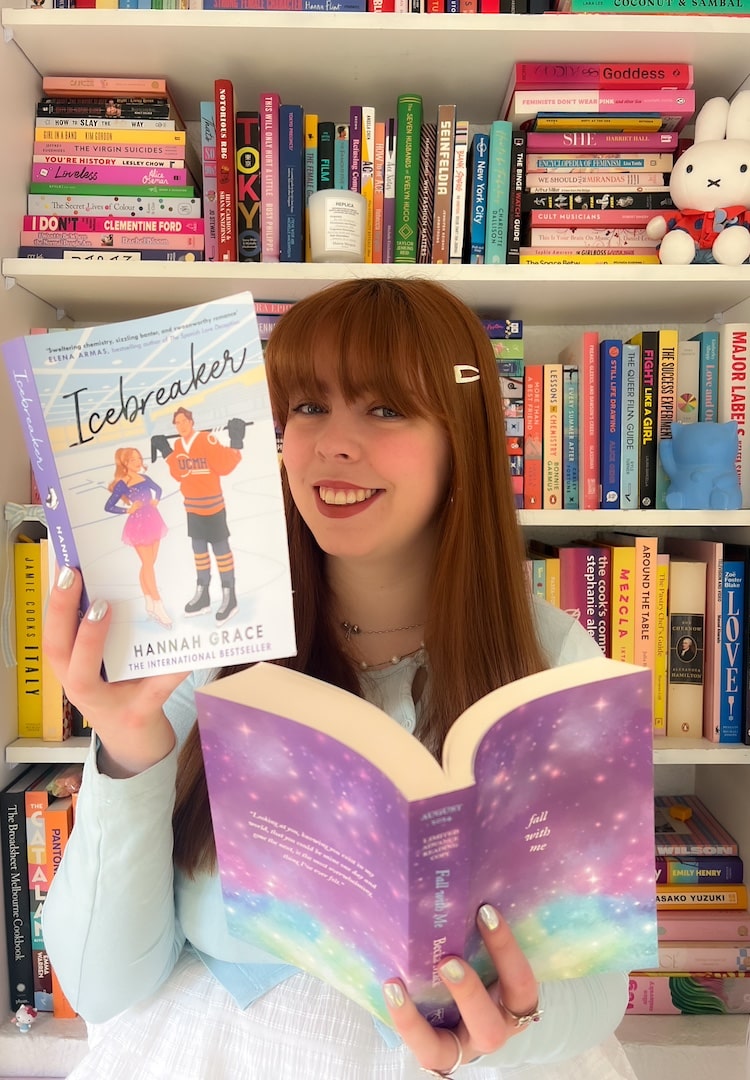“Gossip is a bonding mechanism”: How office gossip made me better at my job
WORDS BY TOM DISALVO
If you don’t have anything nice to say, come sit by me.
Call me gauche, but there’s something all too irresistible about a good, hard-earned gossip. So attuned am I to the pastime that I now consider my ears permanently perked up, just waiting for the titillating preamble of a hushed “Did you hear about…?”.
Given my track record, chances are that I’ve definitely heard, and am a mere seconds away from divulging every minute detail of the topic in question – especially if it relates to scandalous matters like the length of someone’s coffee order (“Did you hear? Two sugars!”).
Interested to hear how others navigate the world? Head to our Life section.
Tight-lipped readers might turn their noses up at these admissions. Gossiping is widely perceived as a nasty and needless practice, in part responsible for letting loose the Perez Hiltons and Regina Georges of the world (although we’re eternally grateful for the latter). There was a time – after being reprimanded for whispering about my year five teacher’s blouse (gingham was not in vogue back then) – that I also saw gossip as a ‘bad look’.
That was until 2020 when I was thrust into a corporate desk job, and the promise of water cooler chit-chat became an essential reprieve and productivity booster amid the grind of the nine-to-five. Mostly idle talk about deadlines, company policies and particularly troublesome clients, gossip was my first port of call in understanding the company’s hierarchy and culture, and an expressway to ingratiate myself with new colleagues.
The reawakening of my dormant smack-talk during my onboarding period was perhaps to be expected. Francis McAndrew, a social psychologist, professor and gossip expert, says gossiping is a social practice evolutionarily “hardwired into us”, to the point where cavemen might’ve been gasbagging about each other’s wardrobes in between hunting sessions (“Did you see Grogg’s new animal hide? So basic!”). “[Gossiping] is sort of like grooming in primates,” Francis explains when I interview him for this piece.
“In the world in which we evolved, one had to know who was sleeping with whom [and] who had powerful allies, because it was essential for social success.” With an understanding of my gossiping forefathers – or as Francis puts it, being a “descendant of busybodies” – I can now see my fondness for blabbing about strict dress codes or the boss’ new necktie was one borne out of necessity and is therefore totally excusable in retrospect.
Indeed, venting about said boss (let’s call him Grogg) with equally unimpressed coworkers became a new source of employee morale. Grogg’s demands to stay late or insistence on micromanaging were softened only by the promise that I could tattle about these grievances with my desk buddy later.
Granted, the conversation would undoubtedly veer towards Meryl Streep’s scene-stealing role in The Devil Wears Prada – a level of bad-ass bossery Grogg could never achieve. But sharing the burden with a trusted workmate became essential in both befriending colleagues and completing the task at hand, even if the task at hand was little more than a frivolous scheme to somehow have Grogg fired.
The surprising benefits of gossip
“Gossip is a bonding mechanism,” Francis explains. “Sharing sensitive information with others is a sign of trust. If you cut yourself out of the gossip network, you are saying to your coworkers that you do not trust them and do not want to be part of their network.” Even beyond its trust-building qualities, to exile oneself from this network would also do a disservice to an overall sense of enjoyment in the workplace.
When faced with monthly targets, scheduled meetings and the eleven-hundredth mention of the economy (why don’t they just print more money?), the minutes-long huddles around the office water cooler may as well be the steps of the Met Gala – a brief escape from the cubicle that provides entertainment and the socialising fuel for better output.
“By definition, gossip is entertaining and fun,” Francis says. “It makes the time at work go more quickly and pleasantly.” Of course, reaping all of these benefits of office gossip means understanding the practice is a two-way street. Just as my boss might’ve been wary of which tie to wear on a given day due to my (mostly) harmless comments, so too was I aware that my own misdeeds might be overseen. This ‘monitoring’ function of smack talk might seem targeted, but it was equally essential in maintaining my work ethic.
“[Gossip] is an effective way to keep people in line,” Francis explains. “Knowing that other people are monitoring your behaviour and talking about you forces you to be a good citizen. It prevents you from slacking off at work or doing other things that your coworkers may disapprove of.” It’s this knowledge of peering eyes and ears – and potentially loose lips – that motivates me to stay on task. It’s also why I’ll go the extra mile to ensure the procrastination YouTube video I’m watching is just a window-scroll away from the office Slack chat.
Why gossip gets a bad rap
So why then, despite all its benefits, is gossip still a dirty word? A quick Google search will spit out numerous pages, usually targeted at managers, about how best to minimise workplace chatter. Much has been written about gossip being feminine-coded and therefore stained by the patriarchy as a perceived threat, and it’s these sorts of limited perceptions that Francis also attributes to gossip’s bad name.
“It gets a bad rap because people have a much-too-narrow definition of what it is. They only think of the negative, back-stabbing type of gossip, but if you are discussing a person who is not present, you are gossiping.” It’s why the one colleague who insists they’re ‘above’ gossiping is probably the first to comment when someone arrives late. Despite being the boots-on-the-ground source for why a box of staples went missing (I had paperwork to file, okay?), this type of colleague wouldn’t consider themselves a gossip.
“Many people define gossip as something that other people do, but not them,” Francis says. “If they are talking about someone, they think of it as ‘expressing concern’ or ‘sharing important information’ but not gossip.” This broader understanding of what constitutes gossip helps to minimise the stink attached to it, and better appreciate the many benefits it brings to the workplace. As Francis puts it: “[Gossip] is an essential part of social life. It is a social skill, not a character flaw.”
So, the next time a deadline is approaching or a target goes unmet, hold strong in the knowledge that you can rant about all of it to a colleague. Build a mutually-beneficial network of fellow gossips for morale-boosting sessions, and keep each other motivated with the friendly threat of tattle-tales. With all that productive energy in the bank, you’ll even have time to draft up a Burn Book for display in the break room, with pages full of Grogg’s messy attempts at a Windsor knot.
Above all, you can arrive at the office with a new work mantra, one that understands gossip’s necessity and was first declared by poet Dorothy Parker: “If you’ve got nothing nice to say… come and sit by me.”
For more on the surprising benefits of gossip, try this.













